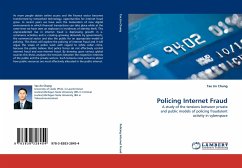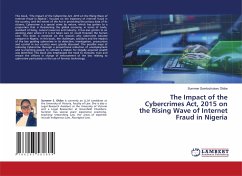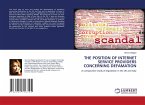As more people obtain online access and the finance sector becomes transformed by networked technology, opportunities for internet fraud grow. In recent years we have seen the maturation of new digital environments in which financial transactions can take place while at the same time we have seen an explosion in incidences of identity theft. This unprecedented rise in internet fraud is depressing growth in e-commerce activities and is creating growing demands by governments, the commercial sector and also the public for an appropriate model of policing. This thesis will explore the policing of internet fraud and it will argue the scope of police work with regard to white collar crime, because the public believe that police forces do not effectively control internet fraud and non-internet fraud. By drawing upon various global sources this thesis analyzes the tensions between the respective interests of the public and the private sectors. Such tensions raise concerns about how public resources are most effectively allocated in the public interest.








